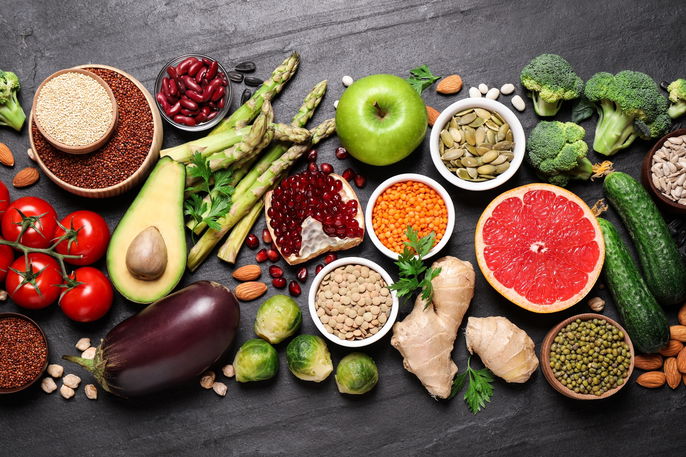A migraine diet aims to prioritize a balanced diet and is made-up of foods with anti-inflammatory and calming properties to prevent the onset of headaches. Some recommended foods in the migraine diet include fish, ginger, whole grains (like brown rice or quinoa) and fruit (like avocados and bananas).
When maintaining a migraine diet, you should avoid certain foods, like alcohol, chocolate, some cheeses and processed meats, as they can trigger migraine attacks.
It is also essential to drink a minimum of 1.5 liters of water per day, as dehydration can also be associated with migraine flare-ups.

What to eat
Some foods that have anti-inflammatory, calming and antioxidant properties that can help to fight migraines include:
- Fresh fruits, such as papaya, persimmon, pear, apple, avocado, banana and mango;
- Fresh vegetables, such as lettuce, tomatoes, chard, chayote, pumpkin and okra;
- Whole grains, such as brown rice, quinoa and oats;
- Low-fat protein, such as chicken, eggs, turkey and tofu;
- Legumes, such as beans, chickpeas, soybeans, lentils and dried peas;
- Some fresh fish, such as tilapia, trout, salmon, sardines or sea bass;
- Tubers, such as potatoes, sweet potatoes, sweet potatoes or yams.
You can also include teas that are naturally anti-inflammatory in your diet, like ginger and lemon balm tea. Check-out other natural remedies for migraines that you can prepare at home.
Meal plan
The following table outlines a sample 3-day meal plan that adheres to a migraine diet:
This meal plan is just an example of a migraine diet. The amounts and foods mentioned may vary according to each individual's preferences and health status. You are advised to consult a nutritionist for a complete assessment and to devise a personalized meal plan that suits your needs and health goals.
Food to avoid
The foods that trigger migraines vary from person to person, and it is important to monitor your intake to identify triggering foods. Some foods that seem to cause migraines include:
- Alcohol, such as beer, wine and champagne;
- Food with caffeine, such as coffee, chocolate, green tea, mate tea and black tea;
- Processed meats, such as sausage, salami, mortadella and ham;
- Seeds, such as walnuts, almonds, hazelnuts and peanuts;
- Milk and dairy products, especially cured and processed items, such as parmesan cheese, mozzarella, brie and gouda;
- Monosodium glutamate, which is found in processed foods, such as canned goods, preserves, soy sauce and instant noodles.
Furthermore, foods with gluten, such as wheat, rye, barley or malt, can cause migraines in people who have irritable bowel syndrome, gluten intolerance or celiac disease.
Also recommended: Foods with Gluten: Food List to Avoid with Gluten Intolerance tuasaude.com/en/foods-with-glutenOther foods that can cause migraine attacks in some people are citrus fruits such as oranges, pineapple and lemons, and artificial sweeteners such as aspartame and sucralose. A good tip is to write down the foods that cause migraines and exclude them from your diet to see if symptoms improve.






























